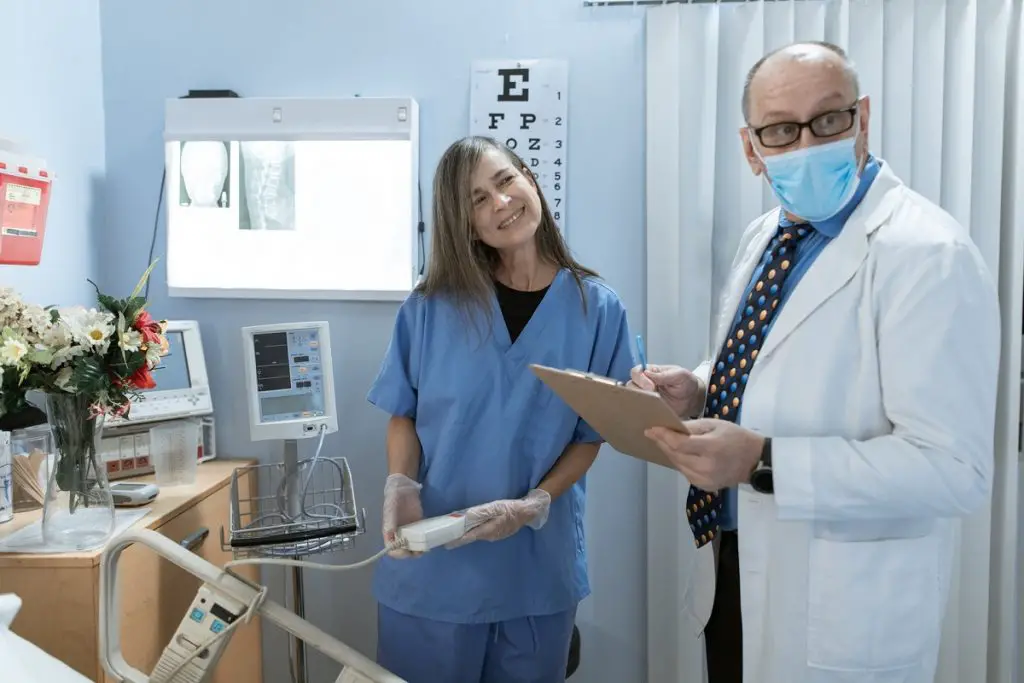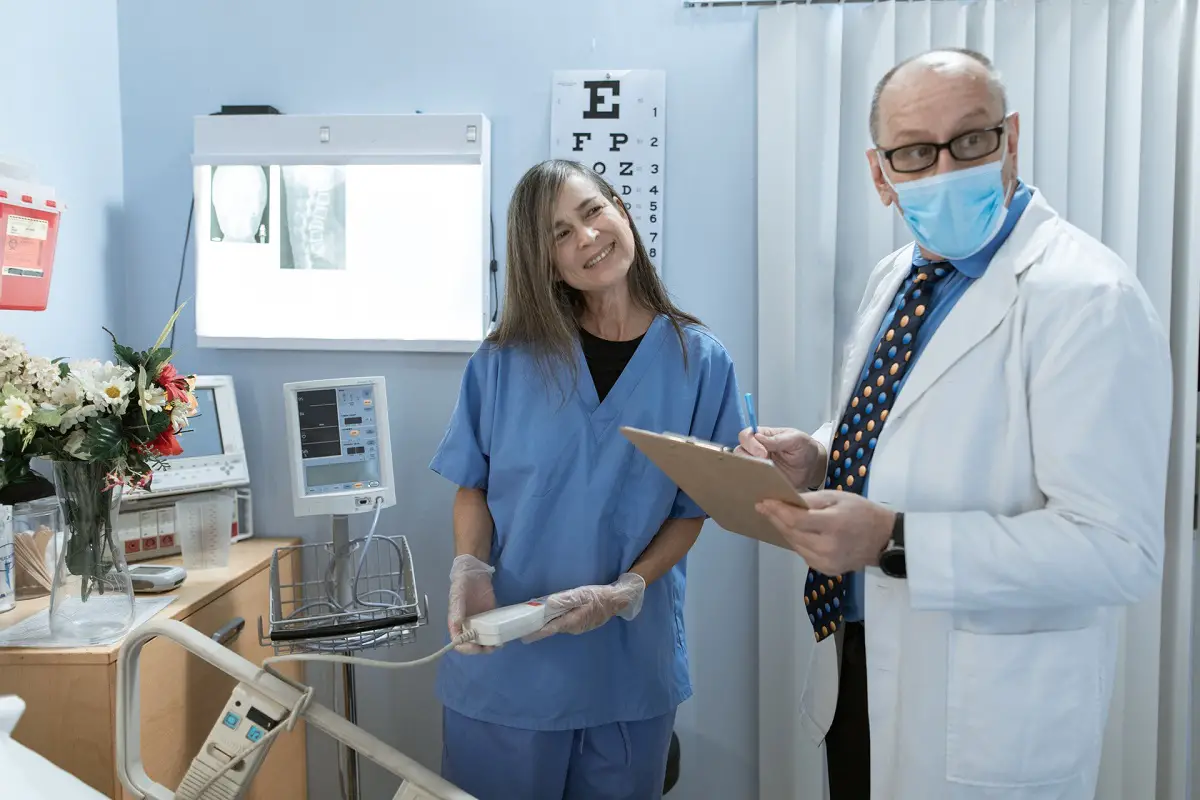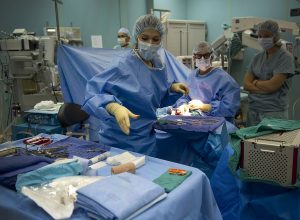
Working as a Primary Health Nurse Practitioner (NP) in Saskatchewan requires several things. Additional education and training, passing a national qualifying exam or meeting other stringent requirements for licensure, being licensed by the Saskatchewan Registered Nurses Association as an independent practitioner.
As a vital element of the healthcare system, a Nurse Practitioner (NP) is a professional who provides care in a variety of settings including primary care clinics, long-term care institutions, nursing stations, and as a part of healthcare teams.
A nurse practitioner (NP) has the authority to conduct advanced health assessments, diagnose health conditions, order diagnostic tests, and prescribe drugs to their patients.
Nurse practitioners oversee all elements of treatment from the point of entry into the healthcare system to the point of discharge into the community in which they reside, as well as participating in healthcare policy creation, health promotion, and illness prevention initiatives in the community.
How much does a Nurse Practitioner make in Saskatchewan?
As a Nurse Practitioner in Saskatchewan, you can expect to earn roughly $54.96 per hour, which is 6 percent more than the national average. The income varies depending on where you work and what you do. The information below will give you a general idea of how much different specialties make.
Family Nurse Practitioner
In Saskatchewan, Canada, the average salary for a Family Nurse Practitioner is $117,890 per year and $57 per hour. A Family Nurse Practitioner may expect to make anything from $82,273 to $146,557 per year on average. Family Nurse Practitioners require a Master’s degree in order to practice.
Neonatal Nurse NP
In Saskatchewan, the average hourly wage for a Neonatal Nurse Practitioner is $59. The typical compensation for a Neonatal Nurse Practitioner ranges between $85,082 and $151,216 per year, depending on experience. In most cases, a Master’s Degree is the greatest education standards required to become a Neonatal Nurse Practitioner.
Pediatric Nurse
Pediatric Nurse Practitioner wages in Saskatchewan can range anywhere from $54 to $59 an hour, depending on experience and location.
How to become a Nurse Practitioner in Saskatchewan
A registered nurse or nurse practitioner in Saskatchewan is required to be a member of the Saskatchewan Registered Nurses Association (SRNA), which is a professional self-regulation association.
It is the Registered Nurse (Nurse Practitioner) or the RN that nurse practitioners in the province use as their professional title (NP). There are four categories in which you can become registered to practice: a registered nurse with a nurse practitioner (NP) specialization works in adult, neonatal, pediatric, or primary care settings.
- If you did your RN training in Saskatchewan, please follow these steps to apply for the Canadian Registered Nurse Examination (CRNE).
- If you got your registered nurse training outside of Saskatchewan but inside Canada, please follow these steps to begin the process of becoming a registered nurse in the province of Saskatchewan.
- If you earned your registered nurse training outside of Canada, you are referred to as an Internationally Educated Nurse (IEN). To begin the process of becoming a registered nurse in Saskatchewan, follow these steps.
- You must fill out a consent form to obtain employment verification information if you were previously registered as a registered nurse in Saskatchewan but have not worked in the province for five years or more. This will start the process of having your Saskatchewan registered nurse license reinstated.
Once you have obtained your RN registration in Saskatchewan, you must complete 4500 hours of practice before you may apply for RN (NP) registration in the province. Continue on with the following steps to achieve your RN (NP) certifications:
Step 1: Get your Degree
You must complete an RN (NP) education program that the SRNA Council has recognized and approved. Regulations governing the approval of RN (NP) education programs in the province.
It’s possible that you’ll be qualified for RN (NP) registration even if your NP program is not in Saskatchewan when you finish. A demonstration of your knowledge of the nurse practitioner competencies expected of RNs (NPs) in the province may be required by the Nursing Practices and Standards Council.
The province of Saskatchewan expects you to be registered as a nurse practitioner (NP) in the jurisdiction in which you finished your NP education before graduating from a program in another province. The regulatory agency in your jurisdiction has determined that you’re competent to practice as a nurse practitioner in that jurisdiction ensures the SRNA that its equivalence determination process will be less difficult.
For this reason, while applying for RN (NP) registration in Saskatchewan, you must provide proof of your registration and/or licensing in your “home” jurisdiction before your application can be complete.
Step 2: Pass the Nurse Practitioner Exam
In order to be eligible to register as a Registered Nurse (NP) in Saskatchewan, you must first complete your RN (NP) course and then pass the applicable nurse practitioner exam.
Step 3: Apply for your RN (NP) License
If you have completed your NP degree in Saskatchewan and have 4500 hours of experience as a registered nurse, you are eligible to apply for RN (NP) licensure in the province of Saskatchewan.
Visit here to obtain more information and to ask any questions you may have about becoming a Nurse Practitioner in Saskatchewan.
What can a Nurse Practitioner do in Saskatchewan?
A nurse practitioner (NP) has the authority to conduct advanced health assessments, diagnose health conditions, order diagnostic tests, and prescribe drugs to their patients.
What can a Nurse Practitioner prescribe in Saskatchewan?
In Saskatchewan, nurse practitioners (NPs) are authorized to prescribe, with no restrictions on the route of administration: Drugs such as narcotics and prohibited compounds, as well as benzodiazepines and cannabis, as well as other targeted substances and testosterone.
Can Nurse Practitioners work independently in Canada?
You can start your own practice after passing the licensing exam and receiving your Nurse Practitioner Designation. Few NPs start their own practice since it requires patients to pay for their services.
Written by Sara Rembert
Sara has a background in health care and case management, working for several years as a home help aid. Having always loved writing, but unsure of how to put her expertise to use, she brought together these two passions by becoming a freelance writer, specializing in medical and nursing writing.
Recommended articles:









